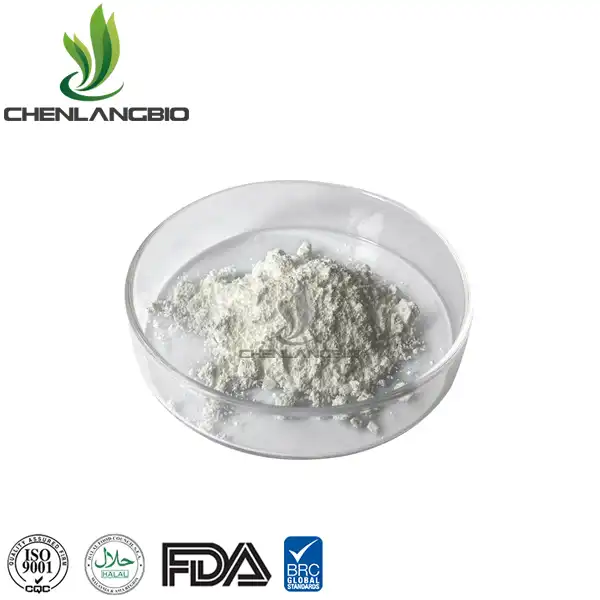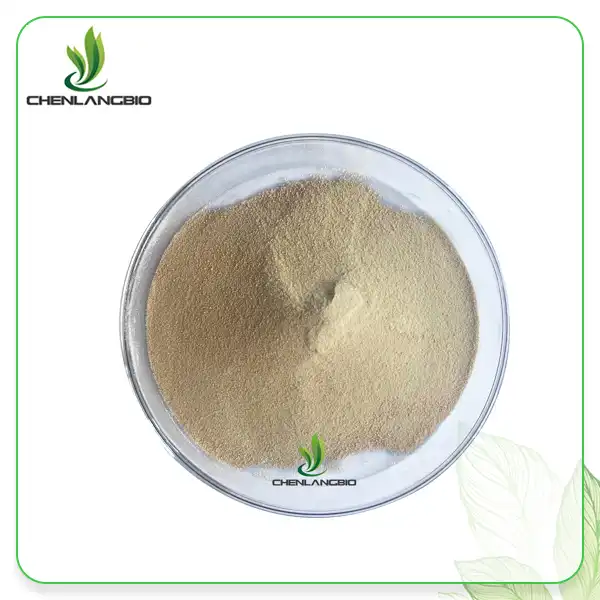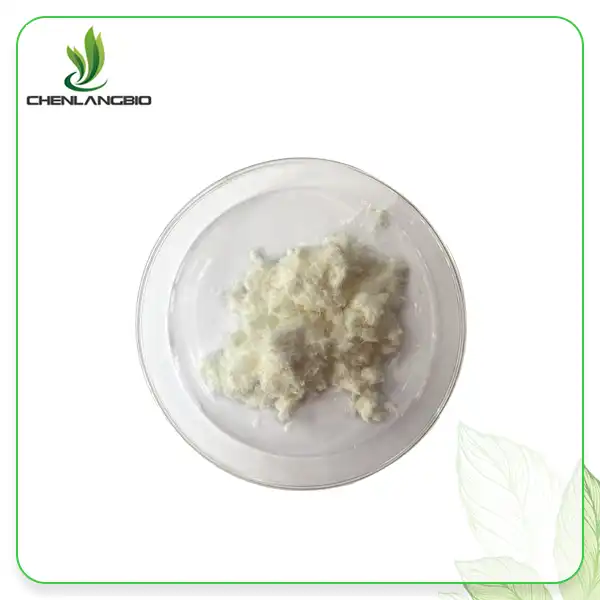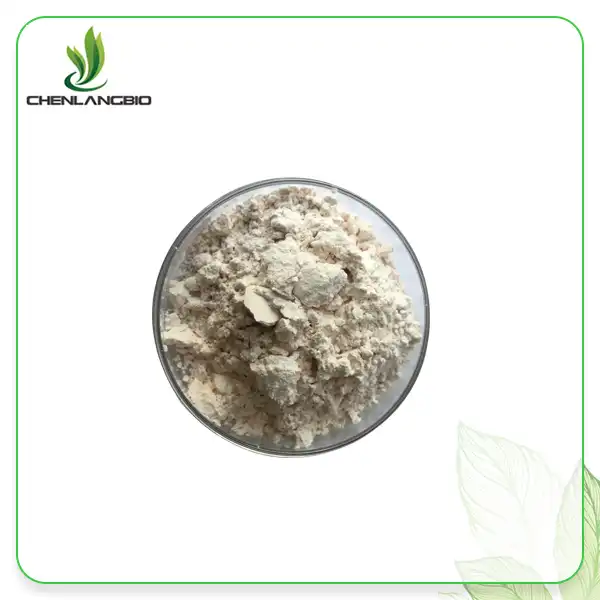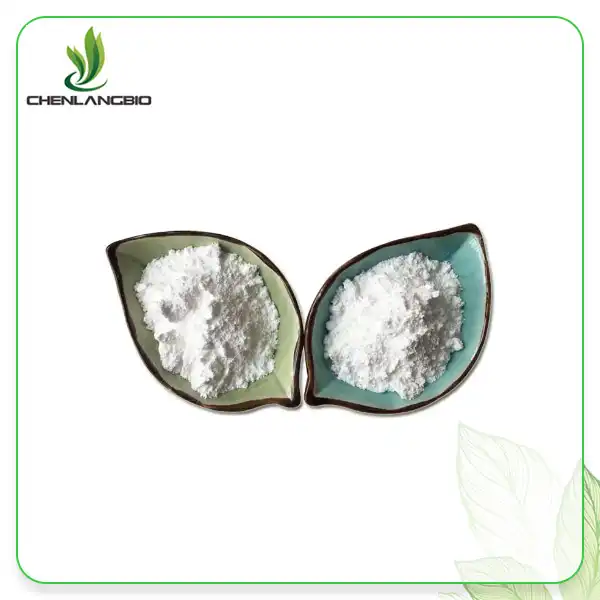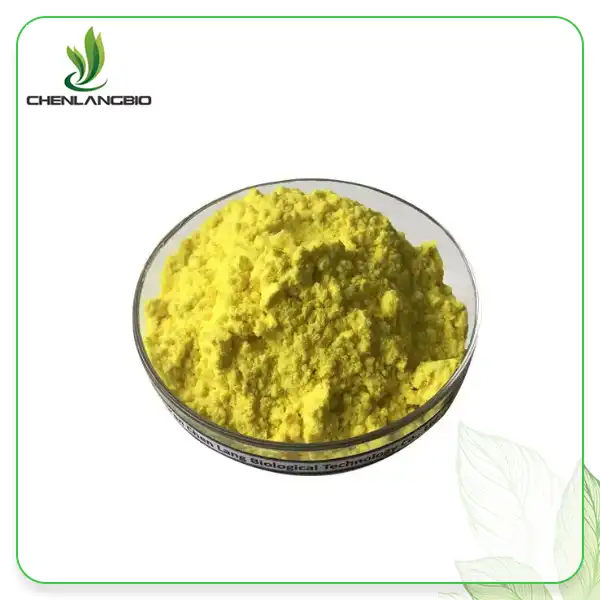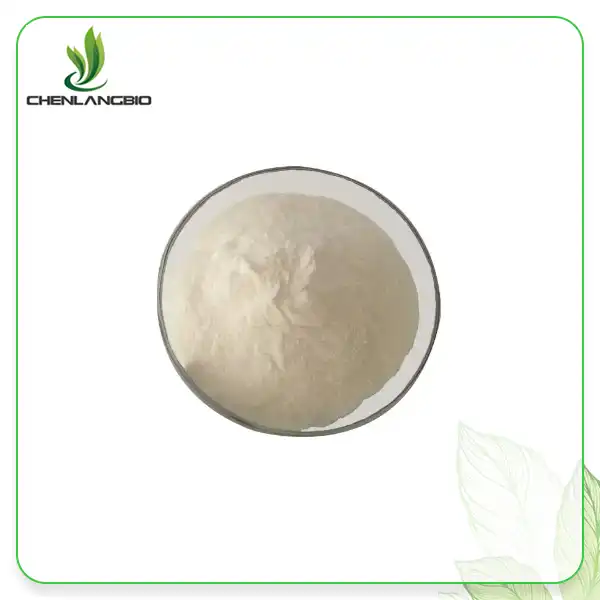How Do I Use Hyaluronic Acid Powder In My Skincare Routine
2024-06-06 10:40:02
Hyaluronic Acid Powder has gained immense popularity in the skincare world for its hydrating and anti-aging properties. As a versatile skincare ingredient, incorporating it into your routine can yield numerous benefits. In this blog post, we'll explore the best practices for using Hyaluronic Acid Powder effectively to enhance your skincare regimen.
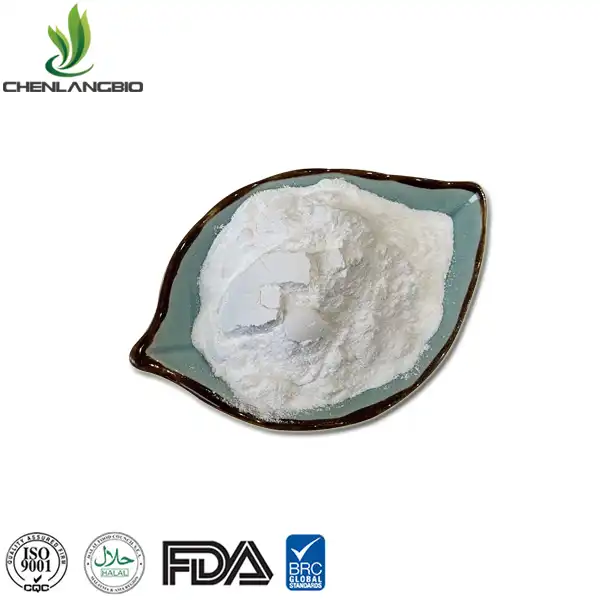
How Does Hyaluronic Acid Powder Benefit the Skin
Hyaluronic acid (HA) is a naturally occurring substance in the human body that plays a crucial role in maintaining skin hydration and elasticity. When used in powder form, hyaluronic acid offers several benefits for the skin:
Hydration: Hyaluronic acid has a unique ability to hold water molecules, making it an excellent moisturizer for the skin. When applied topically, it helps to attract and retain moisture, keeping the skin hydrated and plump. This hydration effect can help to improve the appearance of fine lines and wrinkles, giving the skin a smoother and more youthful appearance.
Anti-aging: As we age, the level of hyaluronic acid in the skin decreases, leading to dryness, loss of elasticity, and the formation of wrinkles. By replenishing hyaluronic acid levels with a powder form, it can help to combat these signs of aging, restoring moisture and firmness to the skin.
Wound Healing: Hyaluronic acid has been shown to promote wound healing by regulating inflammation and encouraging the growth of new blood vessels. When applied to the skin, it can help to soothe irritation, reduce redness, and accelerate the healing process for cuts, burns, and other skin injuries.
Protection: Hyaluronic acid also has antioxidant properties, which help to protect the skin from environmental damage caused by free radicals. By neutralizing these harmful molecules, it can help to prevent premature aging and maintain the overall health and vitality of the skin.
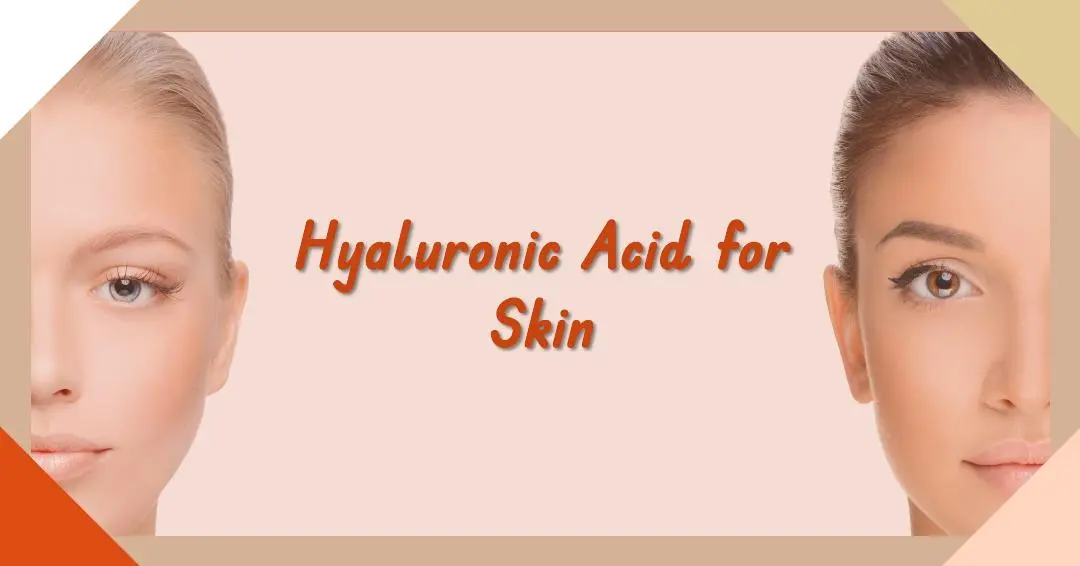
What Is The Best Way To Incorporate Hyaluronic Acid Powder Into My Skincare Routine
Integrating Hyaluronic Acid Powder into your daily skincare routine requires careful consideration of factors such as product compatibility, application techniques, and frequency of use. Whether you prefer to mix it with other skincare products or use it as a standalone treatment, there are several strategies to maximize its efficacy.
In this section, we'll provide step-by-step guidance on how to incorporate Hyaluronic Acid Powder into your morning and evening skincare rituals. From cleansing and toning to serum application and moisturization, we'll outline a comprehensive approach to help you achieve radiant, hydrated skin.
Morning Routine
Cleanse: Start your day by cleansing your face with a gentle cleanser to remove any impurities or residue from the night before.
Tone: After cleansing, apply a hydrating toner to balance your skin's pH levels and prepare it for better absorption of subsequent skincare products.
Mix Hyaluronic Acid Powder: In a clean container, mix a small amount of hyaluronic acid powder with water or a water-based serum to create a hydrating serum.
Apply Serum: Gently pat the hyaluronic acid serum onto damp skin, focusing on areas that need extra hydration such as the cheeks and forehead.
Layer Moisturizer: Follow up with a lightweight moisturizer to seal in the hydration and provide a protective barrier against environmental aggressors.
Sun Protection: Finish your morning routine with a broad-spectrum sunscreen to shield your skin from harmful UV rays and prevent premature aging.
Evening Routine
Double Cleanse: Remove makeup and cleanse your face thoroughly with an oil-based cleanser followed by a water-based cleanser to ensure all traces of dirt and impurities are removed.
Exfoliate (Optional): 1-2 times a week, incorporate an exfoliating treatment to slough off dead skin cells and promote cell turnover for a smoother complexion.
Tone: Apply a soothing toner to rebalance your skin after cleansing and prepare it for the next steps in your routine.
Mix Hyaluronic Acid Powder: Repeat the process of mixing hyaluronic acid powder with water or serum to create a hydrating serum for nighttime use.
Apply Serum: Gently pat the hyaluronic acid serum onto clean, damp skin, paying extra attention to areas prone to dryness or fine lines.
Layer Treatment Products: If you use any targeted treatment products like retinol or peptides, apply them after the hyaluronic acid serum and allow them to absorb fully before proceeding.
Moisturize: Finish your evening routine with a richer moisturizer to replenish your skin's moisture barrier and support overnight repair and regeneration.
Eye Cream (Optional): If desired, apply an eye cream to the delicate skin around your eyes to address concerns like dark circles or puffiness.
Final Steps: Complete your nighttime routine with any additional treatments or spot treatments as needed, then relax and let your skincare products work their magic while you sleep.
Are There Any Potential Side Effects Or Precautions To Consider When Using Hyaluronic Acid Powder
While Hyaluronic Acid Powder is generally considered safe for most skin types, it's essential to be aware of potential side effects and precautions to ensure a positive skincare experience. From allergic reactions to improper usage, there are several factors to consider before incorporating this potent ingredient into your routine.
Select a High-Quality Product: Choose a pure and fine-textured hyaluronic acid powder from a reputable brand.
Create a Serum: Mix the powder with water or a water-based serum to create a hydrating serum.
Apply to Clean, Damp Skin: Pat the serum onto your face and neck after cleansing and toning, focusing on dry or aging areas.
Layer with Moisturizer: Follow up with a moisturizer to seal in the hydration.
Use Twice Daily: Incorporate the serum into both your morning and evening routines.
Combine with Other Actives: Pair hyaluronic acid with compatible ingredients like vitamin C or retinol for enhanced benefits.
Monitor Skin Response: Watch for any sensitivity or irritation and adjust usage accordingly.
Be Patient: Results may take time, so consistency is key for optimal results.
In conclusion, incorporating Hyaluronic Acid Powder into your skincare routine can be a game-changer for achieving hydrated, youthful-looking skin. By understanding its benefits, proper usage techniques, and potential side effects, you can harness the power of this potent ingredient to elevate your skincare regimen to new heights. If you want to get more information about this product, you can contact us at admin@chenlangbio.com
References:
Ganceviciene, Ruta et al. "Skin anti-aging strategies." Dermato-endocrinology vol. 4,3 (2012): 308-19. doi:10.4161/derm.22804
Papakonstantinou, Eleni et al. "Hyaluronic acid: A key molecule in skin aging." Dermato-endocrinology vol. 4,3 (2012): 253-8. doi:10.4161/derm.21923
Farwick, Mike et al. "Molecular basis for the regenerative properties of a secretion of the mollusk Cryptomphalus aspersa." Skin Pharmacol Physiol vol. 23 Suppl 1 (2010): 15-22. doi:10.1159/000318378
Draelos, Zoe Diana. "The latest cosmeceutical approaches for anti-aging." J Cosmet Dermatol vol. 7,1 (2008): 2-7. doi:10.1111/j.1473-2165.2008.00354.x
Jegasothy, Sanusi Umar. "Efficacy of a New Topical Nano-hyaluronic Acid in Humans." J Clin Aesthet Dermatol vol. 7,3 (2014): 27-9.
Tran, Duc. "An Overview of Hyaluronic Acid Fillers." Plast Surg Nurs vol. 38,2 (2018): 67-70. doi:10.1097/PSN.0000000000000209
Gold, Michael H. "Use of hyaluronic acid fillers for the treatment of the aging face." Clinical Interventions in Aging vol. 3,1 (2008): 153-9. doi:10.2147/cia.s1104
Ranzini, A C et al. "Topical Formulation Containing 5% Hyaluronic Acid Responds to the Needs of Skin Aging." Journal of Drugs in Dermatology vol. 16,1 (2017): 58-64.
Litwiniuk, Malgorzata et al. "Hyaluronic acid in inflammation and tissue regeneration." Wounds: a compendium of clinical research and practice vol. 26,3 (2014): 79-89.
Baumann, Leslie. "Cosmeceutical Critique: Hyaluronic Acid." Skin & Allergy News vol. 36,10 (2005): 32.
Send Inquiry
Related Industry Knowledge
- Asiaticoside Powder vs Madecassoside: Which Is Better?
- How Can You Ensure High Consistency and Purity in Acetylcysteine Powder Supply?
- What are the Chemical Properties of Sodium Methylesculetin Acetate?
- How Should Resveratrol Extract Powder be Consumed?
- Where to Buy Quality Durian Fruit Powder
- What Are the Side Effects of Nitenpyram
- What are the Side Effects of Taking EGCG
- Is Praziquantel Safe for Humans
- Different Between Alpha Arbutin and Beta Arbutin Powder
- What Functions of the Olive Leaf Extract Powder Hydroxytyrosol


